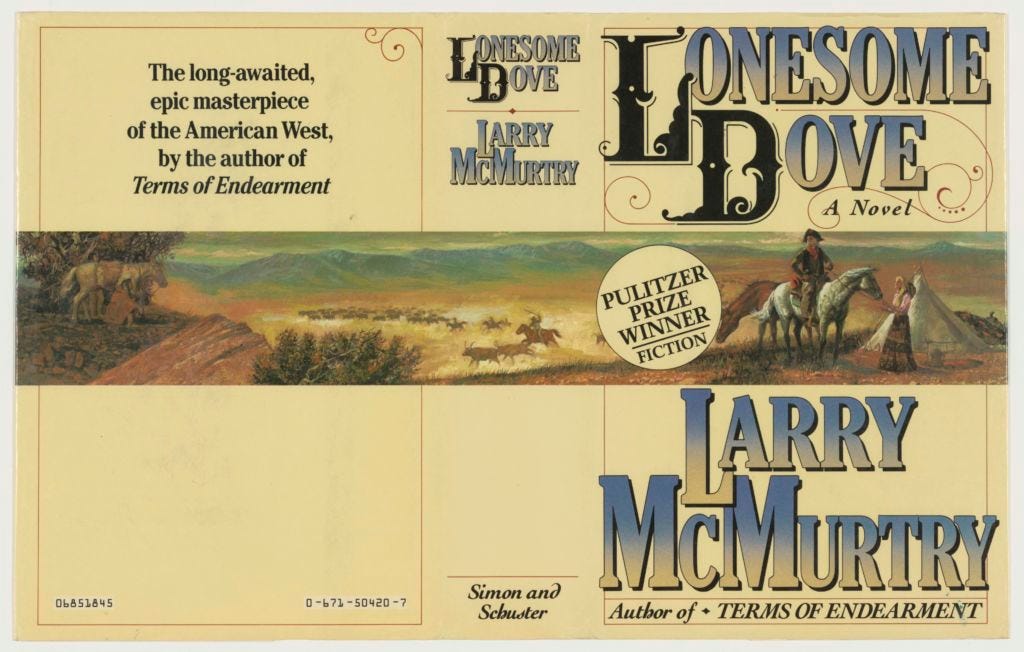Noah Brier | July 24, 2025
The Lonesome Dove Edition
On atmospherics, time, and the merits of going long
Colin here. I started Lonesome Dove because too many people I respected, none of them "Western types," called it their favorite book. Writers, strategists, designers. People who read the buzzy new stuff at Books Are Magic, or Sebald and Baldwin, not cowboy epics.
So I picked it up and got pulled into something much deeper than expected. It will be hard for me to leave.
Over the past few months, I've read the entire series. You don't have to go in order, and in many ways it might be better not to. Reddit and the avid fans implored me to start with Lonesome Dove. I then went to the last book, Streets of Laredo, then the second, Comanche Moon, and now I'm finishing the first, Dead Man's Walk. Lonesome Dove is the emotional and mythic center, and many people know it from the TV series. While it was a bit disorienting in terms of the timeline of their lives, I'd do it again. I saw what these men became, then traced the quiet wreckage backward and forward. It was just spectacular.
Why is this interesting?
Larry McMurtry's West isn't romantic. It's brutal, decaying, beautiful in moments, and often very still. His atmospherics are incredible, and nothing ever feels rushed. Believe me, I learned patience from these books. It takes 200 pages before anything really happens in Lonesome Dove, so you learn to enjoy the details: the wind through dry grass, a porch creaking at dusk, glugs of whiskey after a long patrol consumed in shoddy saloons. I could feel the swollen tongues and parched mouths as these Texas Rangers made their way across arid places that were still unknown and very dangerous. And predictably, there were lots of snakes, death, and heartbreak.
I absolutely loved the characters. Deets, the freed slave and quiet observer who sees everything. Pea Eye, unsure of himself but more grounded than most, who emerges as one of the last men standing. Gus and Call, one gregarious and the other withdrawn and enigmatic, tethered by an early friendship, loyalty, and heavy shared experiences.
Lonesome Dove has a kind of weathered optimism. You feel like there's still room for one more ride. But the concluding book, Streets of Laredo, closes that door. The world is smaller, the frontier is gone. The violence is dialed up to eleven and verges on slowly simmering horror at times. Most depressingly, the myth has rotted out from the bottom, and all that's left is the weight of the entire story.
McMurtry, in what looks like a Western, built one of the most emotionally resonant pieces of American fiction I've read. Admittedly, I read far more nonfiction, but this has me hooked and has changed what I understand to be truly possible through these long, beautiful epics with character arcs that stretch and unfurl across the years.
"It's a fine world, though rich in hardships at times." — Augustus McCrae
